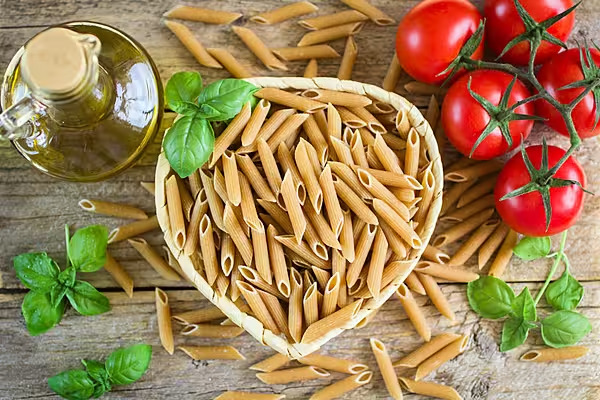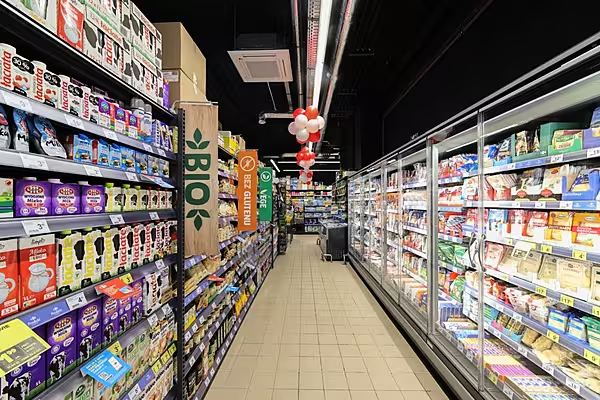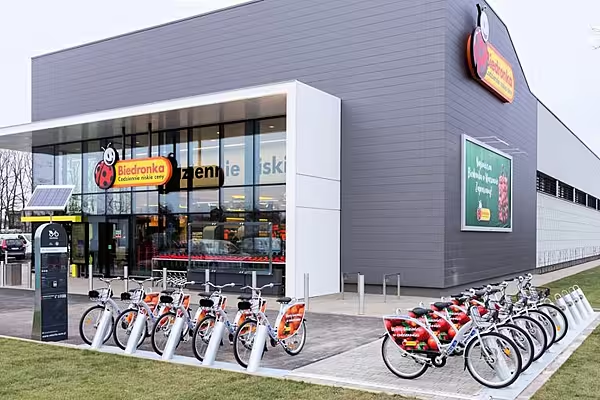Sales of organic products in Italy amounted to €4.6 billion in the 12-month period to July 2021, seeing 5% year-on-year growth, new data has revealed.
Of the total, at-home consumption accounted for €3.87 billion (+4%), while the remaining €701 million (+10%) was driven by out-of-home consumption.
The figures were released by the SANA Observatory report, conducted by Nomisma in collaboration with two Italian organic industry associations, AssoBio and FederBio.
Large-Scale Retail Leads The Way
Large-scale retail distribution accounted for the biggest share of organic sales, with sales amounting to €2.2 billion, or 56% of total at-home consumption (+2%).
Sales in specialised stores amounted to approximately €1 billion, up 8% year-on-year, followed by other channels, such as neighbourhood shops, pharmacies, and street markets at €723 million (+5%).
Within large-scale retail distribution, the hypermarket and supermarket channel accounted for €1.4 billion in organic product sales (stable on the previous year). The discount channel remained far behind at €205 million, but registered growth of 11%.
The highest sales growth was seen in the e-commerce channel (+67% to €75 million) and specialist discount stores (+63% to €2 million).
Popular Products
The most sold organic products in the modern distribution channel were grocery items such as pasta, bakery products, preserves, and sauces, accounting for 57% of the total.
This was followed by fresh products (21%), comprising cheese, cold cuts, yoghurt, eggs. Fruit and vegetables accounted for 12% of sales.
The three best-selling product categories were eggs, jams and fruit spreads and vegetable drinks.
Organic Product Purchase Trends
The SANA Observatory data also revealed that 89% of Italian households made at least one purchase of an organic product in the last 12 months, compared to 53% in 2012.
In 54% of Italian households, organic food and drink is consumed at least once a week and for 50% of food buyers, organic is always the first choice in the trolley, especially for some product categories such as fruit, vegetables and eggs.
The study also found that 57% of consumers consider Italian origin ingredients as an important factor while opting for organic products, while 37% choose organic because it is locally sourced or 'zero kilometre'.
In addition, 52% of consumers seek sustainable packaging, with 27% saying that that it must be 100% recyclable or fully compostable.
Earlier this year, Italy's Senate approved a law to introduce an organic brand to bring all organic products made with raw materials entirely grown or bred in Italy under one umbrella.
Exports And Manufacturing
Italy is the second largest exporter of organic products, after the USA, with exports worth €2.9 billion until July 2021 (+11%).
Italy ranks first in Europe for the number of organic farmers (over 70,000) and processing companies (over 10,000), but per capita expenditure on organic products amounts to only €70, compared to €188 in France and €180 in Germany.
In April of this year, the European Commission said that it plans to expand financial and policy support to help achieve a goal for a quarter of Europe's farmland to be organic by 2030.
© 2021 European Supermarket Magazine – your source for the latest Retail news. Article by Branislav Pekic. Click subscribe to sign up to ESM: The European Supermarket Magazine.














